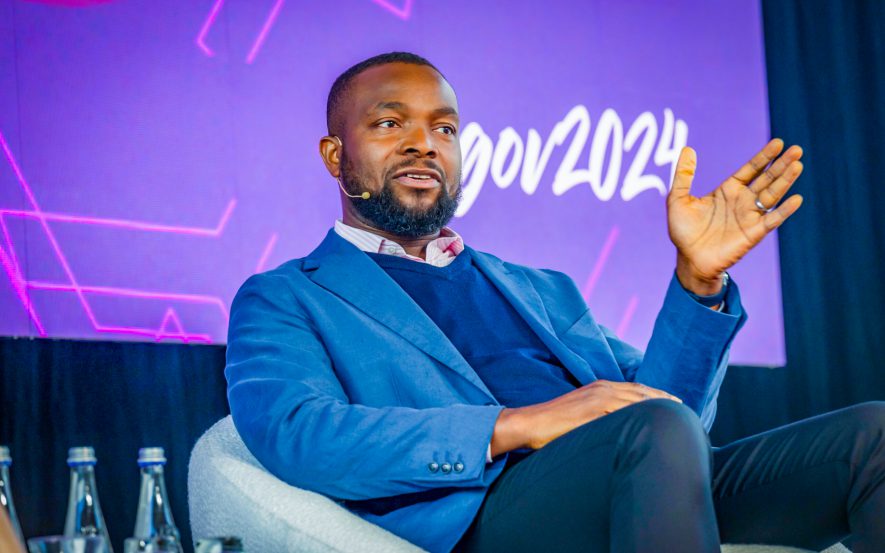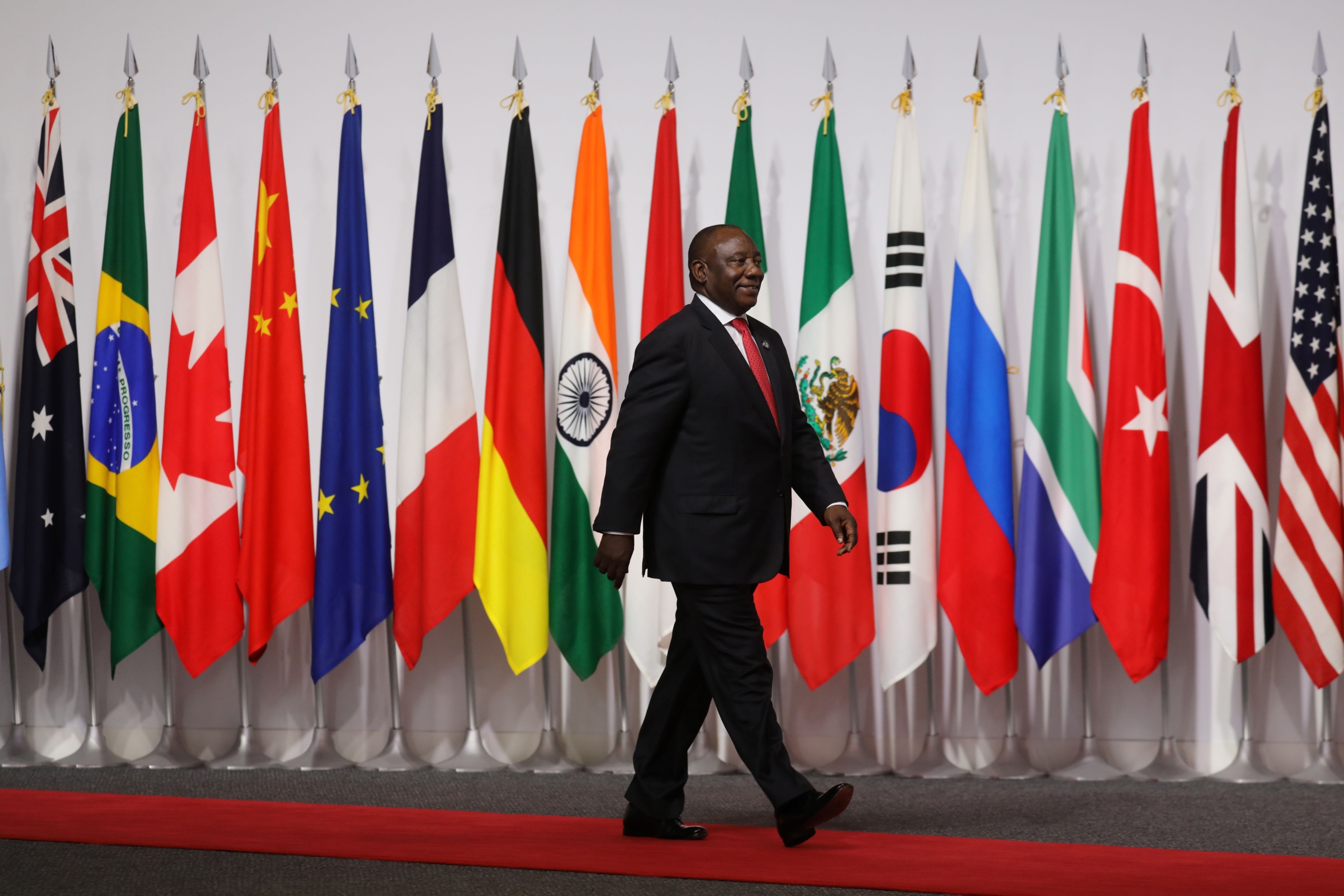Key Points
- Research suggests Microsoft released a white paper titled AI in Nigeria in June 2025, providing a roadmap for AI advancement.
- It seems likely the paper, developed with PwC and Lagos Business School, focuses on reducing inequality through AI in sectors like finance and agriculture.
- The evidence leans toward challenges like infrastructure and skills gaps, with recommendations for policy and partnerships, but the full report isn’t publicly available online as of June 14, 2025.
Direct Answer
Microsoft has likely released a research paper called AI in Nigeria, unveiled during their AI Skills Week in Lagos from June 2 to 6, 2025. This paper, created with PwC and Lagos Business School, aims to guide Nigeria’s AI growth by showing how it can reduce inequality in areas like finance, agriculture, healthcare, and e-commerce. It highlights opportunities for economic development but also notes challenges, such as poor infrastructure, a lack of skilled workers, unclear regulations, and weak data systems.
The paper suggests solutions like building better digital infrastructure, training more AI professionals, creating clear AI laws, and working with government and businesses. However, as of June 14, 2025, the full report isn’t available online for free—it might need to be requested from Microsoft or accessed through specific events. For now, news articles and summaries give a good overview of its key points.
Detailed Analysis of Microsoft’s New Research Paper Providing a Roadmap for AI Advancement in Nigeria
Introduction
This report provides a comprehensive overview of Microsoft’s new research paper, AI in Nigeria, which was unveiled during Microsoft’s AI Skills Week in Lagos from June 2 to 6, 2025. Commissioned by Microsoft and conducted in collaboration with PwC and Lagos Business School, the white paper aims to provide a roadmap for advancing artificial intelligence (AI) in Nigeria, focusing on opportunities, challenges, and strategic pathways for inclusive growth. The analysis is grounded in recent news articles and official announcements, ensuring a detailed understanding for stakeholders interested in Nigeria’s AI landscape as of June 14, 2025, at 11:45 PM WAT.
Methodology
The information was gathered from various sources, including Microsoft’s official news page, PwC Nigeria’s website, and technology-focused platforms like Punch NG, Businessday NG, and ThisDayLive, with a specific emphasis on updates from June 2025. The analysis includes details of the white paper’s content, its unveiling event, target areas, and expected impact, ensuring a holistic view of Microsoft’s AI initiatives in Nigeria.
Key Findings
Overview of the White Paper
Research suggests Microsoft released the white paper AI in Nigeria in early June 2025, with findings unveiled during Microsoft AI Skills Week in Lagos. This event, a five-day program, was designed to equip customers, business leaders, developers, and end users with the knowledge and hands-on experience needed to drive AI adoption, combining self-paced learning, live sessions, and interactive workshops . The white paper, a collaborative effort by PwC Nigeria, Lagos Business School, and Microsoft, explores how AI can shape Nigeria’s future, highlighting insights, use cases, and recommendations .
Key Findings and Insights
The white paper emphasizes AI’s potential to drive inclusive growth and address social and economic inequalities in Nigeria. Key findings include:
- AI’s Transformative Potential: It suggests that implementing AI across key sectors—finance, agriculture, healthcare, and e-commerce—could significantly reduce inequality and stimulate economic development. For instance, AI could enhance financial inclusion through credit scoring, optimize agricultural yields with precision farming, improve healthcare diagnostics, and streamline e-commerce logistics .
- Current State of AI in Nigeria: AI remains an emerging field, but recent years have seen a notable shift in awareness, investment, and application. Global advancements and growing recognition of AI’s transformative power have catalyzed a mindset shift among Nigerian entrepreneurs, researchers, policymakers, and investors. Government initiatives like the Nigeria Artificial Intelligence Research Scheme (NAIRS), the National Centre for Artificial Intelligence and Robotics (NCAIR), and the National AI Strategy reflect a growing commitment to fostering AI research and development .
- Challenges to AI Adoption: The white paper identifies several barriers that must be addressed:
- Inadequate Infrastructure: Limited access to reliable internet and computing resources hinders AI development and deployment.
- Lack of Skilled Talent: There is a shortage of AI professionals, exacerbated by brain drain, where skilled individuals leave the country for better opportunities. For example, a lack of understanding among business leaders of AI and its related risks and ethical frameworks is noted as a significant hurdle .
- Regulatory Uncertainty: The absence of clear regulatory frameworks for AI governance creates challenges for ethical and responsible AI use, though existing frameworks like the Nigeria Data Protection Regulation (NDPR) are mentioned as a starting point.
- Weak Data Systems: Insufficient data collection and management practices limit the effectiveness of AI applications, with public perception of AI as complex or intimidating also discouraging adoption, particularly among small businesses and rural communities.
Recommendations for Accelerating AI Transformation
The white paper presents a strategic roadmap with recommendations to overcome these challenges and harness AI’s potential:
- Infrastructure Development: Invest in robust digital infrastructure, including internet connectivity and cloud computing resources, to support AI applications. This aligns with broader efforts to enhance Nigeria’s digital economy.
- Skills Development: Expand AI education and training programs to build a pipeline of skilled professionals. Initiatives like Microsoft’s AI Skills Navigator and government-led programs such as the Federal Ministry of Communications, Innovation, and Digital Economy’s Three Million Technical Talent (3MTT) program are crucial for this. The white paper notes that integrating AI into education can significantly speed up the adoption of AI skills .
- Regulatory Frameworks: Develop clear and ethical AI governance policies, building on existing frameworks like the NDPR, to ensure responsible AI use. This includes addressing regulatory uncertainty to foster trust among stakeholders.
- Data Governance: Strengthen data collection, storage, and management practices to enable effective AI deployment, addressing weak data systems as a critical barrier.
- Public-Private Partnerships: Foster collaboration between government, private sector, and academia to drive innovation and address challenges collectively. The white paper highlights the importance of such partnerships in creating an enabling environment for AI research and development.
- Sector-Specific AI Applications: Focus on implementing AI in high-impact sectors:
- Finance: Enhancing financial inclusion through AI-driven credit scoring and fraud detection.
- Agriculture: Using AI for precision farming, crop yield optimization, and market prediction, with examples like startups UjuziKilimo and Farmcrowdy mentioned in related Microsoft reports .
- Healthcare: Improving diagnostics, patient care, and resource allocation through AI tools.
- E-commerce: Streamlining supply chains and enhancing customer experiences with AI-driven logistics and personalization.
Expert Opinions and Quotes
Key figures emphasized the significance of the white paper. Ola Williams, Managing Director of Microsoft Nigeria and Ghana, stated, “Although AI is still an emerging field with early-stage applications in Nigeria, global advancements and the growing recognition of AI’s transformative power have catalysed a shift in mindset across the country. Entrepreneurs, researchers, and policymakers are now exploring AI to address local needs and drive growth” . Olufemi Osinubi, Partner and WMA Consulting Risk Services Leader at PwC Nigeria, added, “While AI’s benefits are immense, balancing risks and rewards is crucial. By building trust and robust governance frameworks, Nigeria can overcome challenges and harness AI’s potential, unlocking significant growth and driving transformation across businesses and society” .
Comparative Analysis
To organize the key details, the following table summarizes the white paper’s focus areas and recommendations:
| Focus Area | Details |
|---|---|
| Potential Impact | Reduce inequality, drive inclusive growth in finance, agriculture, healthcare, e-commerce |
| Current State | Emerging field, growing awareness, government initiatives like NAIRS, NCAIR, National AI Strategy |
| Challenges | Inadequate infrastructure, lack of skilled talent, regulatory uncertainty, weak data systems |
| Recommendations | Infrastructure development, skills training, clear regulations, data governance, public-private partnerships |
| Skills Programs | 3MTT, Microsoft AI Skills Navigator, integration into education |
| Regulatory Framework | Build on NDPR, address uncertainty |
This table illustrates the comprehensive approach to advancing AI in Nigeria.
Broader Context and Additional Insights
While the focus is on the AI in Nigeria white paper, Microsoft has a history of AI engagement in Africa. For instance, in January 2024, Microsoft published AI in Africa: Meeting the Opportunity, a broader report highlighting AI’s potential across the continent . Additionally, Microsoft’s $1 billion digital ecosystem investment in Kenya, announced in May 2024, includes AI-focused components like a green data center and skilling programs, providing context for their regional strategy Microsoft and G42 Announce $1 Billion Comprehensive Digital Ecosystem Initiative for Kenya.
Challenges such as infrastructure limitations were noted in a May 2025 McKinsey report, highlighting that only 5% of African AI developers have adequate computing power, yet the potential for economic growth through AI remains significant. This context underscores the importance of Microsoft’s recommendations, particularly infrastructure development and skills training.
Availability of the Full Report
The full white paper AI in Nigeria is not directly available for public download through standard web searches or Microsoft’s official websites as of June 14, 2025. It was mentioned in several news articles and reports from credible sources, including:
- Microsoft’s Source EMEA: Microsoft’s new research paper provides a roadmap for AI advancement in Nigeria
- PwC Nigeria: AI in Nigeria
- Punch NG: Microsoft outlines new AI future for Nigeria These sources provide summaries and insights from the white paper but do not include a direct download link. It is possible that the full report is available upon request or through specific channels, such as attending Microsoft events or contacting Microsoft directly.
Expert Opinions and Future Outlook
The future outlook suggests that with continued investment and collaboration, Nigeria could lead in AI innovation in West Africa, though infrastructure and skills gaps need addressing. The white paper’s recommendations align with Nigeria’s National AI Strategy, aiming to position the country as a digital leader on the continent.
Conclusion
Microsoft’s AI in Nigeria white paper, unveiled in June 2025, offers a critical roadmap for leveraging AI to drive inclusive growth and address social and economic challenges in Nigeria. While the full report is not publicly available, the key findings and recommendations outlined above provide a comprehensive overview of its content. For those seeking the full document, contacting Microsoft or attending related events may be necessary.
Key Citations
- Microsoft’s new research paper provides a roadmap for AI advancement in Nigeria
- AI in Nigeria
- Microsoft outlines new AI future for Nigeria
- Research Paper Provides Roadmap For AI Advancement In Nigeria
- Microsoft Provides Roadmap for AI Advancement in Nigeria
- Microsoft’s research provides roadmap for AI
- Governing AI in Africa: Policy frameworks for a new frontier
- AI in Africa: Meeting the Opportunity
- Microsoft and G42 Announce $1 Billion Comprehensive Digital Ecosystem Initiative for Kenya




